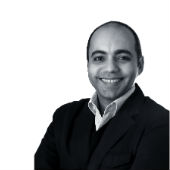Aesop's story of the Tortoise and the Hare concerns a hare who ridicules a slow-moving Tortoise and is challenged by the tortoise to a race. The hare starts at a very fast pace leaving the tortoise behind and, in his confidence of winning, decides to take a nap midway through the race. When the Hare awakes however, he finds that the tortoise, crawling slowly but steadily, has arrived before him.
Agile, what’s that?
Yeah right, we all know this story, so what does it have to do with Agile? To answer this question, we will have to make sure we know and understand what is meant by Agile. Do you really understand what is Agile?
Some sources describe Agile project management as “the iterative and incremental development of products based on an evolving set of customer requirements”. A few years ago when I first read this definition I wondered: “Isn’t this a general description of what projects do?” We get some never-ending continuously changing customer requirements, build a project to get them done, and work endlessly until we decide to change careers, retire, or the project goes bankrupt! My villain self even went into suspecting the correctness and applicability of this new discipline in resolving any problems.
It wasn’t until a few years back when a young bright developer on one of my projects - I later got to know it was called “Daily Scrum” - asked me if I was conscious that I was practicing Agile. On that day, I came to understand that Agile is not an approach to doing things. It’s rather a framework. Much like a house that you live in, with a million and one things that you can do inside.
Aaaaaaah…. A Framework, so that’s what framework means! LoL.
I guess, you must be wondering now if Agile is the slow winning Tortoise or is it the fast losing Hare.
Agile, the true definition
During the early years of the internet, a friend and I had started a small Web and media development company which had the slogan: “the gene that never sleeps”. Our objective was to provide a different class of service to our customers, a service that cares for them, that is always available and that depends on highly motivated knowledgeable staff that really ‘know’ how to do things (not just put you on hold every time you ask a serious question). So, we claimed that the people who worked in this company had an ‘active gene’ in their DNA that never sleeps and that is the reason why our staff managed to be so distinguished and our services were unmatched during the time we operated. Just like our genetically selected staff, Agile is.
If you type in the word “Agile” in your Microsoft Word editor and browse to its synonyms, you will discover that Agile is a synonym to ‘Responsive’. Agile is not a method to tell you how to win a race, it doesn’t tell you how fast or slow you need to be, big or small, hare or tortoise. Agile simply claims that you need two legs to race, that is: you need to be responsive to the race conditions and it’s up to you to determine and respond to all changes.
The Key is: You can’t DO Agile. You can BE Agile.
So what do you think now? Is Agile the slow winning Tortoise or is it the fast losing Hare?
...
“... like those who dine well off the plainest dishes, he made use of humble incidents to teach great truths, and after serving up a story he adds to it the advice to do a thing or not to do it. Then, too, he was really more attached to truth than the poets are; for the latter do violence to their own stories in order to make them probable; but he by announcing a story which everyone knows not to be true, told the truth by the very fact that he did not claim to be relating real events”. Philostratus, Life of Apollonius of Tyana, Book V:14
Fadi
Photo credit: © artisticco - Fotolia.com

I’m a Certified Project Manager and Scrum Master with a diverse experience and a record of deadline met projects. I’m specialized in IT systems and solutions, in addition to my experience in managing accounts and client relations across multiple industry domains including Banking, Government, Consultancy, Energy and IT.
I left Orange Business in 2014.